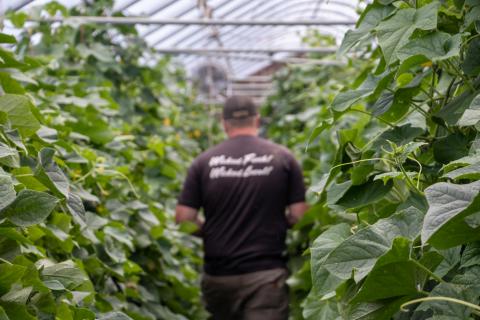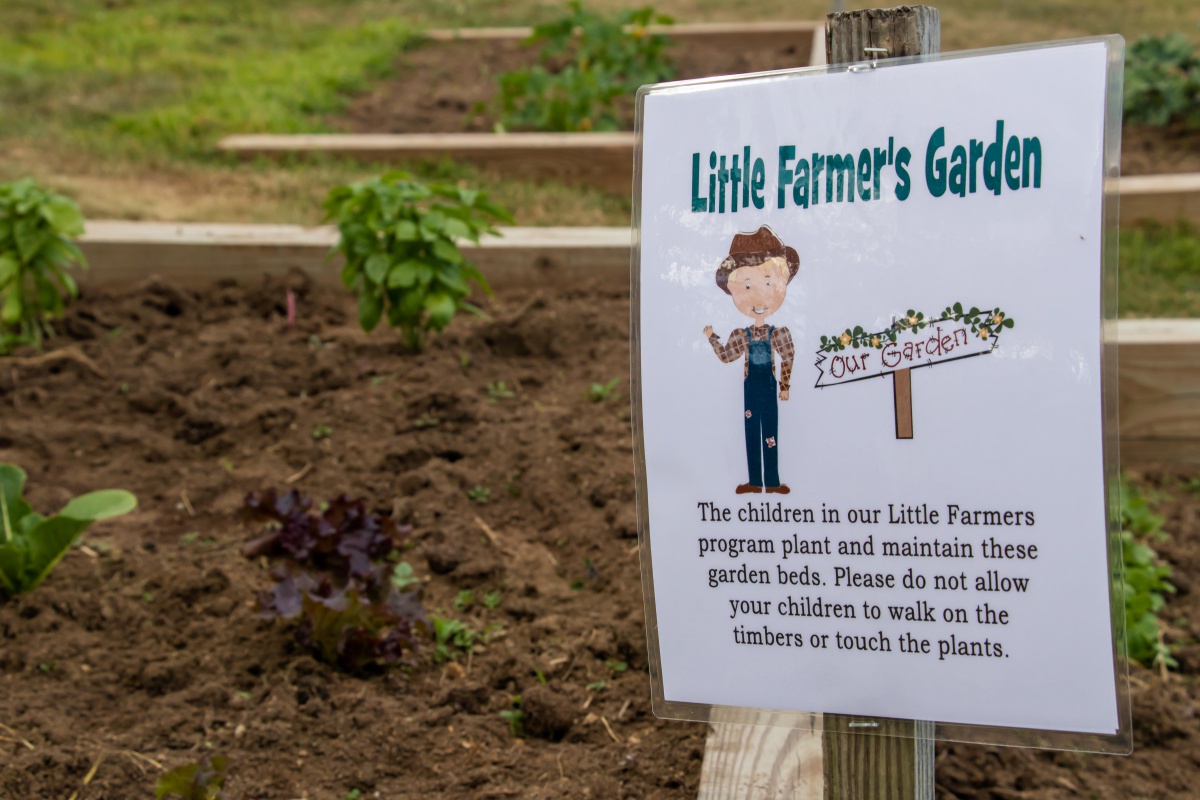Returning to Their Roots

Farming is rewarding, but as most agricultural producers know, the work is challenging. This is especially true for new farmers. Earlier this year, UNH Extension interviewed new and beginning Granite State farmers. In this continuing series of profiles, we share their success stories, challenges, farming tips and hopes for the future of their businesses.
For Jeff Hatch and Michele Hatch Dutton, farming is a family affair. Their grandparents started Sherman Farm in Center Conway in 1964 and the siblings were born and raised on the farm. After careers elsewhere, the two returned to work at the farm in the mid-2000s and have been carrying on the family tradition ever since.
Sherman Farm is a diverse operation, with some 60 acres of vegetables and fruits, 130 head of Angus beef cattle and 30 pigs, a bustling farm market, a milk delivery service and a celebrated 12-acre “Corn Maize” each fall.

Hatch and Dutton’s grandparents, Al and Phyllis Sherman, opened the farm five decades ago. With the help of their daughters, Cheryl, Kathy and Debbie, the farm grew. Kathy, Hatch and Dutton’s mother, became a full partner in 1990 and now manages the farm’s operations with her children. Hatch heads up production and general management—in the spring, he tills and gets the farm ready for the growing season, taking care of everything from corn and cows to beans and peas. Dutton handles marketing and public relations and runs the farm’s store.
The store sells fresh produce and milk, along with a wide array of foods, including prepared meals. “You can easily make a whole meal” with what’s sold in the store, Dutton says.

Sherman Farm prides itself on its service to families. There’s a playground a petting zoo on site, and in the summer the farm hosts a “Little Farmers Program.” As part of the program, children get to grow, maintain and harvest their own crops in a small garden, all while learning about local food systems and how food makes it from the field and to the table. This past summer, participating kids were able to take a field trip to the nearby Fryeburg Veterinary Hospital and other local farms.

“It’s cool to make a connection with the kids,” Dutton says.
Hatch agrees. “The biggest goal with the little farmers program is to instill some agriculture back into the kid’s lives,” he says.
That philosophy applies the community as well. According to Dutton, farming doesn’t just strengthen family bonds—it creates community connections. “Making a connection between the farmer and your food is huge. Knowing who’s growing it, and how they’re doing it, we are very transparent about how we do it and why we do it,” she says.

